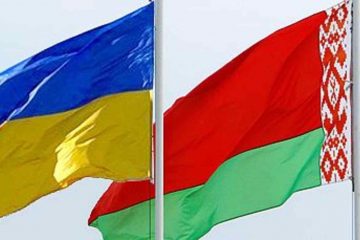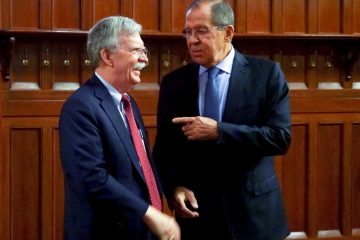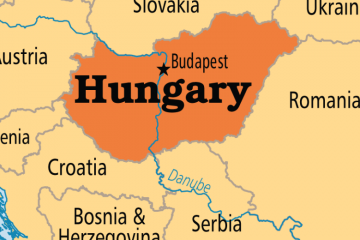By Anna Nemtsova
Ramzan Kadyrov may well be Vladimir Putin’s most ghoulish creation—a political Golem who remains slavishly loyal to the Russian leader but who also serves as a constant and nagging reminder of how ugly Putin-style autocracy can get when it really goes over the edge. Like the character Smerdyakov in The Brothers Karamazov, Kadryov claims he is only fulfilling the wishes of his master, Putin, with his brutal tactics and threats to political opponents. The Chechen leader considers himself “Putin’s warrior,” and his never-fading mantra is one he repeated to me in an interview at one of his palaces in the Chechen republic: “As long as Putin backs me up, I can do everything, Allahu Akbar!”
But lately Kadyrov’s outrageous tactics—and his tendency to advertise himself as Putin’s attack dog, even outside Chechnya—seem to be embarrassing Russia’s dictatorial leader. Kadyrov’s latest hate campaign comes at a time when Putin is gingerly trying to win his way back into the international community’s good graces after being sanctioned for his nation’s seizure of Crimea and infiltration of Ukraine; when the Russian president has just been publicly blamed by a British inquiry for the assassination of former KGB agent Andrei Litvinenko; and Putin faces a threat of waning popularity at home in the face of Russia’s economic troubles.
Kadyrov’s latest stunt came on Sunday, when he published an Instagram video showing a Putin rival, Russian opposition politician Mikhail Kasyanov, in the optical sight of a rifle. Coming after the murder of popular liberal politician Boris Nemstov last year—among the five Chechens suspected in the killing is an associate of Kadyrov’s —it was yet another indication that Putin may have created a monster he can barely control any longer and is not eager to advertise (the Kremlin said nothing about Kadyrov’s post).
“I hear a lot that relations between Putin and Kadyrov have grown worse, and after Boris Nemtsov’s murder last February, that Kadyrov lost the ‘access to the body’ [the Kremlin] and is doing everything to restore it, the way he knows how,” Duma deputy Dmitry Gudkov told me in an interview last week. “Putin gave him carte blanche for Chechnya, but not for Russia.”
Even so, the political creature that Putin nurtured is still brazenly stepping over the border, and that could spell trouble for his Kremlin sponsor, both at home and in world opinion. Thanks to Putin’s support, the 39-year-old Kadyrov, a former guerrilla soldier, has lived the life of a king for the past decade as part of a deal whereby Putin, following two wars against rebellious Chechens, granted more autonomy to Chechnya in exchange for loyalty to the Russian state. Kadyrov kept his word to Putin, providing Moscow with a faithful electorate and soldiers; in return, Putin let Kadyrov live the life of an Ottoman pasha, building an empire of palaces, private gyms, and enormous militias of mostly former guerrillas, and amassing collections of expensive vehicles, race horses and wild animals. Still, most Chechens have been happy to support Kadyrov; under his rule, thanks to billions of rubles poured in by Putin, Chechnya turned from a ruined post-war land of misery to a construction heaven, an envy for most neighboring republics.
In Kadyrov’s simple world, he has sought to model his cult after Putin’s—by putting up portraits, shutting down critics (allegedly by killing some of them) and declaring a heroic fight against a joint enemy: “foreign agents.” It worked fine as long as Kadyrov confined himself to Chechnya. But more recently he has begun to threaten Russian public figures—perhaps thinking he had been given leave to do so. “He must have heard something said behind the stage of Volodin’s circle [Vyacheslav Volodin, Russia’s deputy chief of stuff], last December, something like, it’s time to squash the ’fifth column,’” Mikhail Zygar, author of best- selling All The Kremlin’s Men, told me. “So he took on the role of their club, thinking it would be more than welcomed.”
Last week, Chechen officials handed out Kadyrov’s and Putin’s portraits to hundreds of thousands of government-sponsored demonstrators bused into the capital city of Grozny. The city was festooned with banners condemning “enemies”; among them, Nemtsov’s close friend, opposition leader Ilya Yashin, a 32-year-old graduate of prestigious National Research University Higher School of Economics; Aleksei Venediktov, a gray-haired 60-year-old editor-in-chief of Gazprom-owned Echo of Moscow; a prominent human rights defender, 73-year-old Svetlana Gannushkina; and an icon of Russian rock music, 62-year old musician Andrei Makarevich (who on portraits was depicted in a Jewish skullcap). In the Chechen parliament, speaker Magomed Daudov, a Kadyrov ally, listed all the targets next to a picture of Kadyrov and a lunging Caucasian Shepherd attack dog, saying that the dog’s “fangs are itching.”
What’s the reason for Kadyrov’s newest enemies list? Yashin, in an interview with me, said he believes he’s on a banner in Grozny simply because of a request he made a few weeks ago to meet the Chechen leader. “I suspect that Kadyrov was personally involved in ordering Nemtsov’s murder, so I asked him to meet with me in Grozny and speak about the assassination face to face, seriously and professionally,” Yashin told me. The only response Yashin heard from Kadyrov was: “He is a funny dude,” posted on Instagram. Yashin did not find it funny and prepared a report called “Kadyrov is a threat to national security.” The young politician planned to present his report on February 23d in Moscow, a few days before the one-year anniversary of Nemtsov’s murder.
Aleksei Venediktov, the editor of Echo of Moscow, a popular radio station in Moscow, told me he was not going to hide from Kadyrov. And in fact, the station has covered every step of Kadyrov’s attacks on the opposition. “We are aware of the real reasons behind these threats: The Chechen leadership reacted hysterically to Echo of Moscow’s reports on Nemtsov’s murder,” Venediktov told me in a recent interview. He added: “SS soldiers used German shepherds to attack victims in concentration camps, so it is a shame that the Chechen leadership uses that example.”





Comments